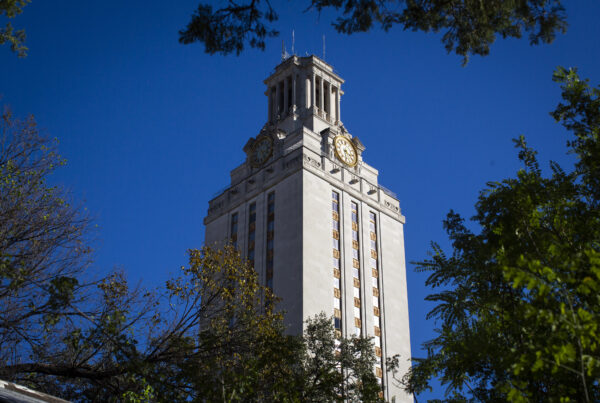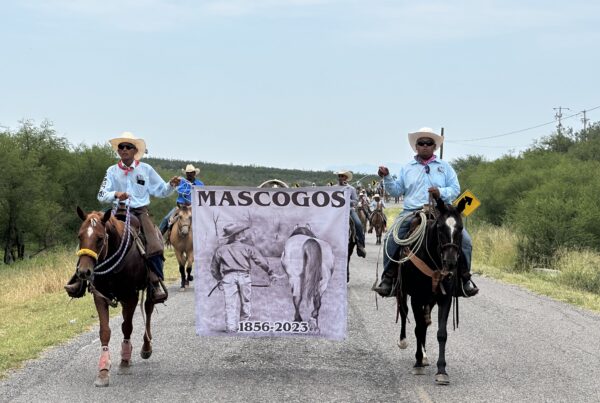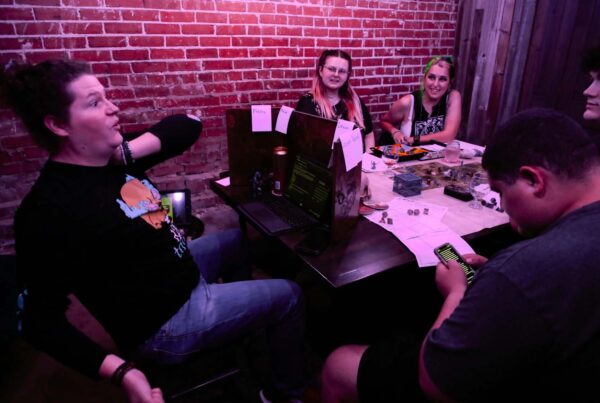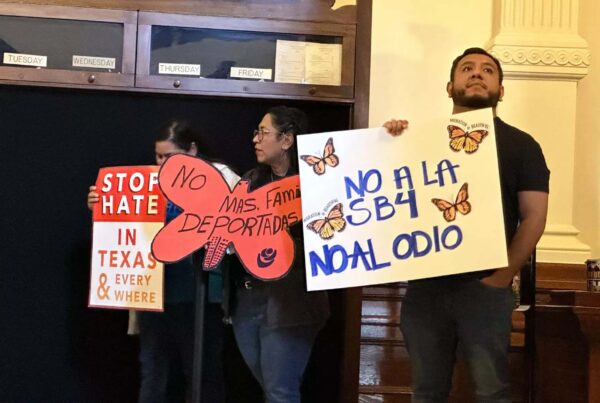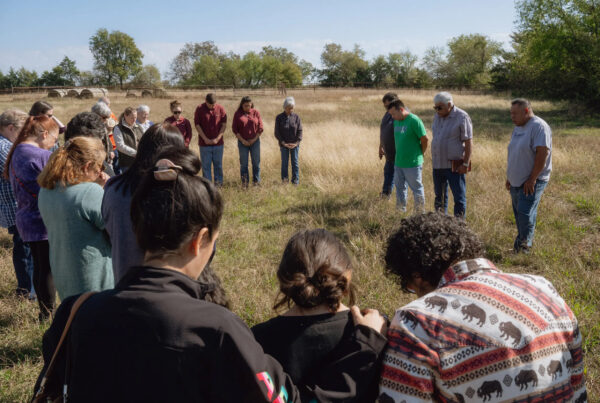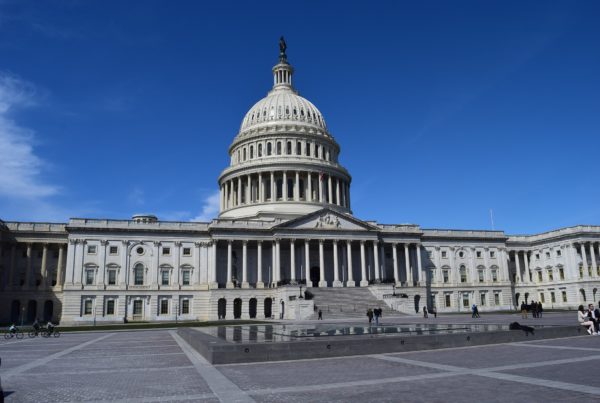From KERA News:
Just days before a DART bus driver was shot near Fair Park earlier this month, union leaders representing the agency’s transit workers told the DART board of directors that it has taken its employees’ security for granted.
The union’s president said the incident was just the latest in a series of issues that are putting workers at odds with the agency.
“I want everybody on the board to figure out how can we make the life a little bit better than what it is today for what we put up with day in and day out, for what we go through day in and day out in fear of coming to work,” DeBoss Christian, president of the Amalgamated Transit Union (ATU) Local 1338, told the board.
The driver was shot just after noon on Nov. 2 and went to the hospital with non-life threatening injuries.
DART spokesperson Gordon Shattles told KERA that the agency was “appalled” by the shooting. He emphasized DART police officers are prioritizing safety for passengers and employees.
Shattles added that the agency is continuing to hire Transit Security Officers — though DART Police Chief Charles Cato told KERA in August that recruiting officers has been “difficult” — and plans to update its security systems in light of the shooting.
But DART workers say the agency isn’t doing enough – and they want to see major changes as ATU negotiates new contracts.
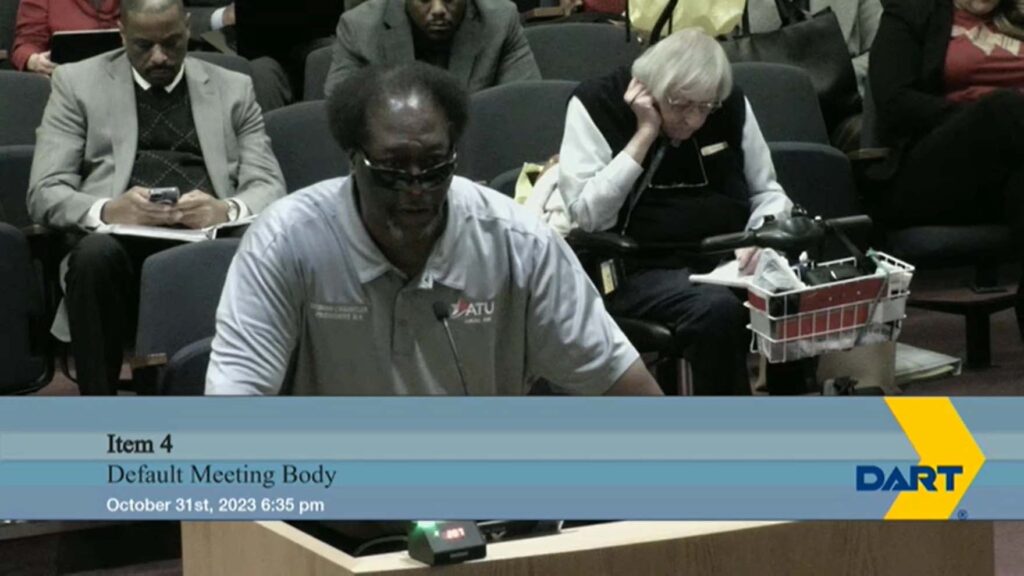
DeBoss Christian, president of the Amalgamated Transit Union Local 1338 speaks at a DART board of directors meeting on Oct. 31, 2023.
“Safety and security has been a big, contentious point,” said Kenneth Day, who represents the local union on ATU’s international leadership board.
Both Day and Christian said they’ve heard horror stories from other employees getting assaulted or robbed while on the job, or suffering heat exhaustion in the agency’s body shops.
“Even in parking areas, you know, employees didn’t [don’t] have to have the luxury of going to work and being comfortable,” Day said.
As these concerns persist, union leaders stress that security isn’t just a local issue — it’s an issue for transit workers across the country.
Assaults on transit workers quadrupled nationwide between 2009 and 2020, according to the Federal Transit Administration. The FTA estimates there’s an average of 174 assaults on transit workers each year.
In 2021, President Joe Biden signed the Bipartisan Infrastructure Bill, which, among other things, requires that transit agencies in large cities like Dallas establish safety committees — something the union says DART is slowly in the process of doing.
Day said the requirement gives unions real teeth to address safety concerns, but he said many transit agencies are reluctant to sit down at the table and honor the requirement.
Meanwhile, federal leaders like Dallas congresswoman Jasmine Crockett are paying attention. Crockett’s office recently announced legislation aimed at protecting transit workers from assault.
“The transit worker safety crisis across America has reached new heights in recent years,” Crockett said in a written statement. “When transit workers are attacked while a vehicle is in motion, the lives of transit riders, pedestrians, and other drivers are put at risk as well.”
But safety isn’t the only issue that workers have with DART.
DART CEO Nadine Lee sent a memo in October thanking employees for their work — while proposing a 3% raise for hourly workers. DART declined a request for an interview with Lee.
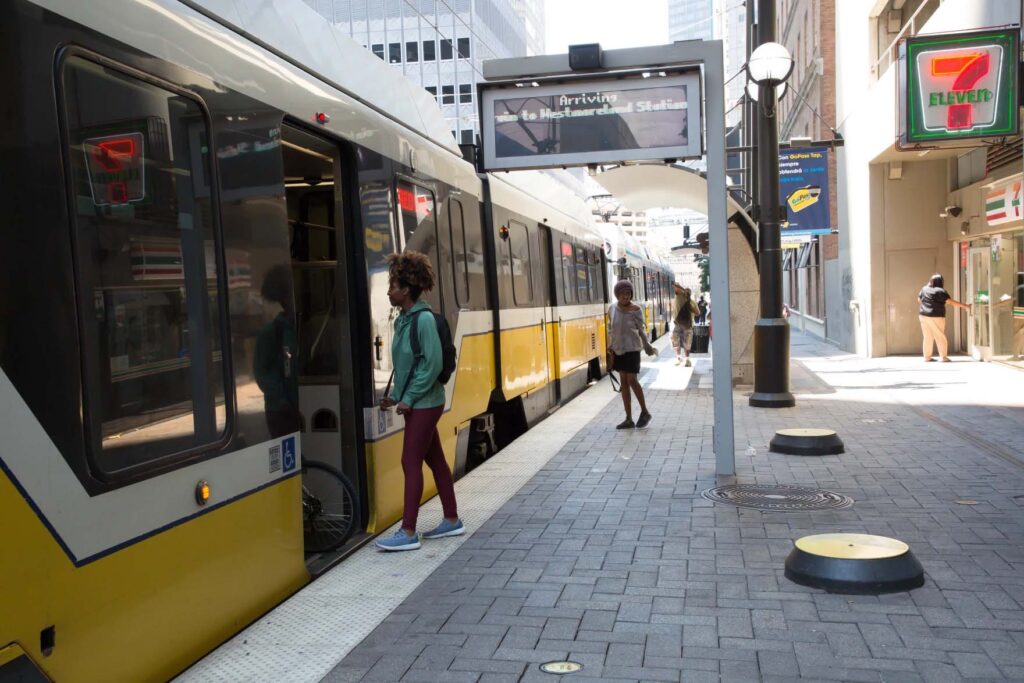
Passengers board a DART light rail train at a station in downtown Dallas.
Pablo Arauz Peña / KERA News
At the Oct. 31 board meeting, workers lined up during public comment to speak up against the agency’s latest proposal.
“You’re leaving us behind, the workers that use the facilities, that use the equipment,” said Mark Broadhurst, who works as a DART mechanic. “So invest in the equipment, invest in a facility, but invest in us.
“Three percent is a joke.”
Broadhurst also mentioned the ongoing investigation into alleged spending by DART’s board of directors for travel.
“I find it, you know, hard to believe that we’re so undervalued while things like that happen and investigation like that are going on,” Broadhurst said.
Currently the union is in what’s called a meet and confer process with the agency, where the agency is federally mandated to be in regular communication with the agency over contract talks.
Union leaders said in the past, the agency and the union have been able move through contract talks without too many issues. Christian said that hasn’t been the case in recent years.
“The problem I got with DART is communication,” Christian said. “Communication is a big problem consistent of ATU and management of DART.”
Texas laws aren’t friendly to unions, so ATU Local 1338 is limited to what it can and can’t do. The union can’t legally strike, but the agency is required by federal law to bargain in good faith with workers — and they say their safety, wages and benefits are a top priority.
Overall, DART workers aren’t happy with the way the transit agency is handling talks between leadership and the union. Christian said morale is low — and that’s a problem for both workers and passengers alike.
“When you got drivers coming in at two or three o’clock in the morning and somebody putting a gun up to you, taking your vehicle,” Christian said, “somebody has to take responsibility for that.”
For now, he and other union leaders say they’re weighing out their options as contract talks continue.




